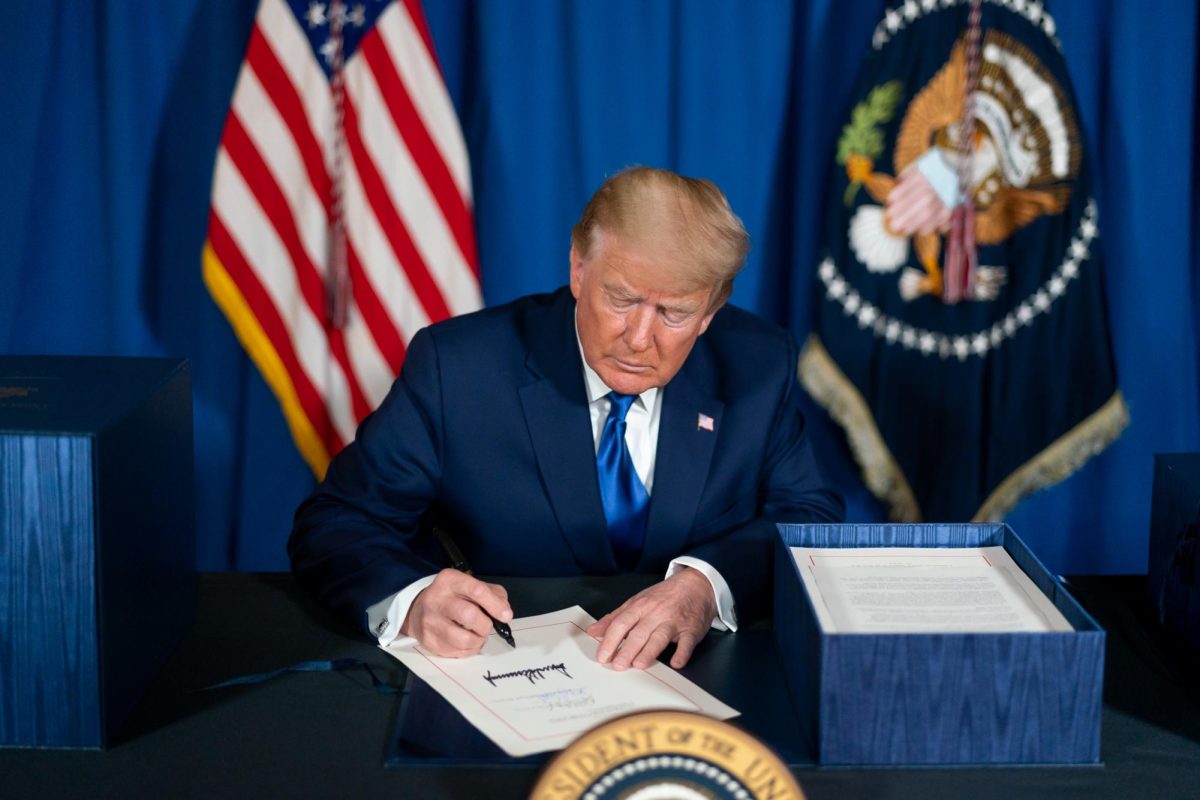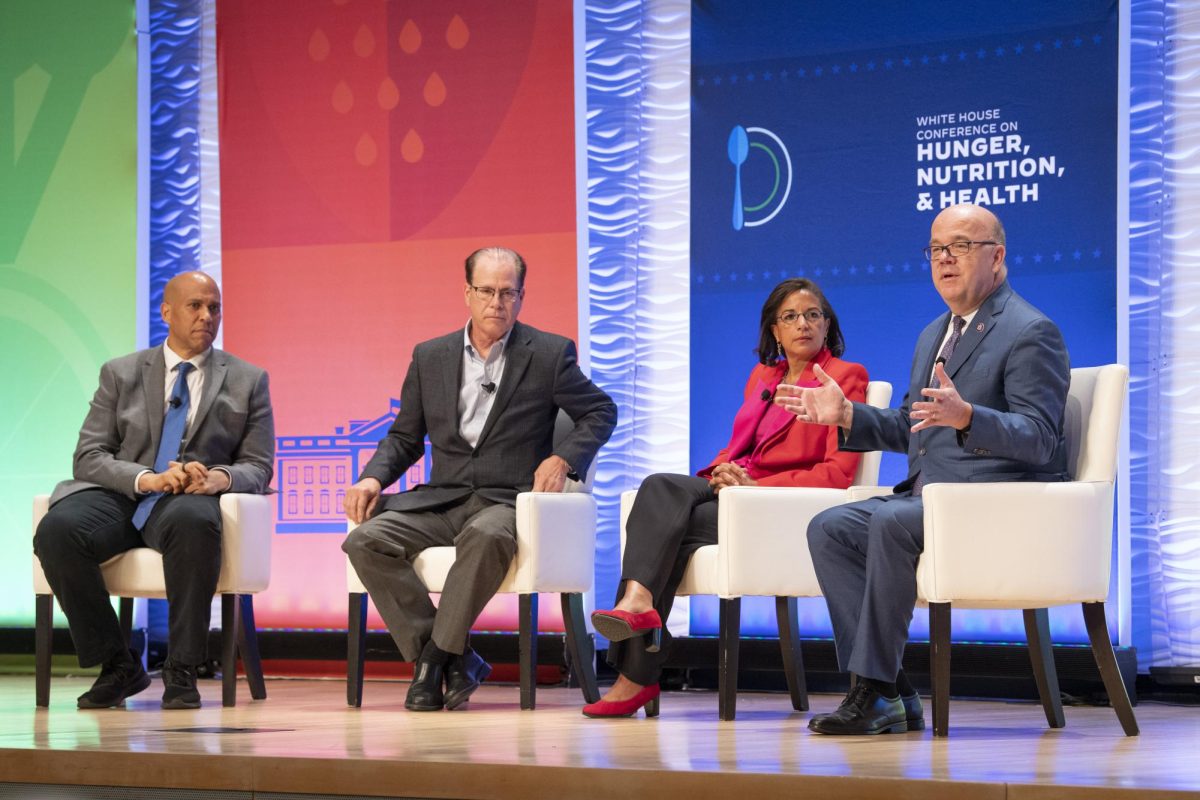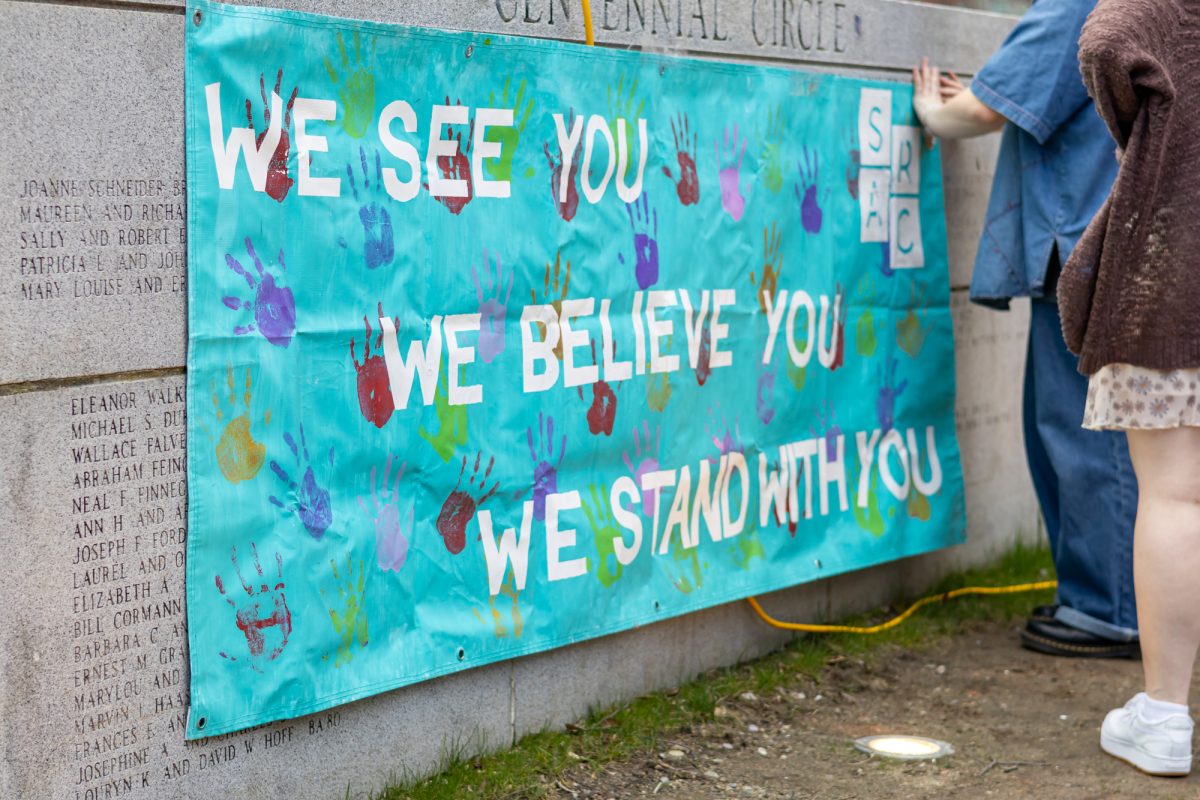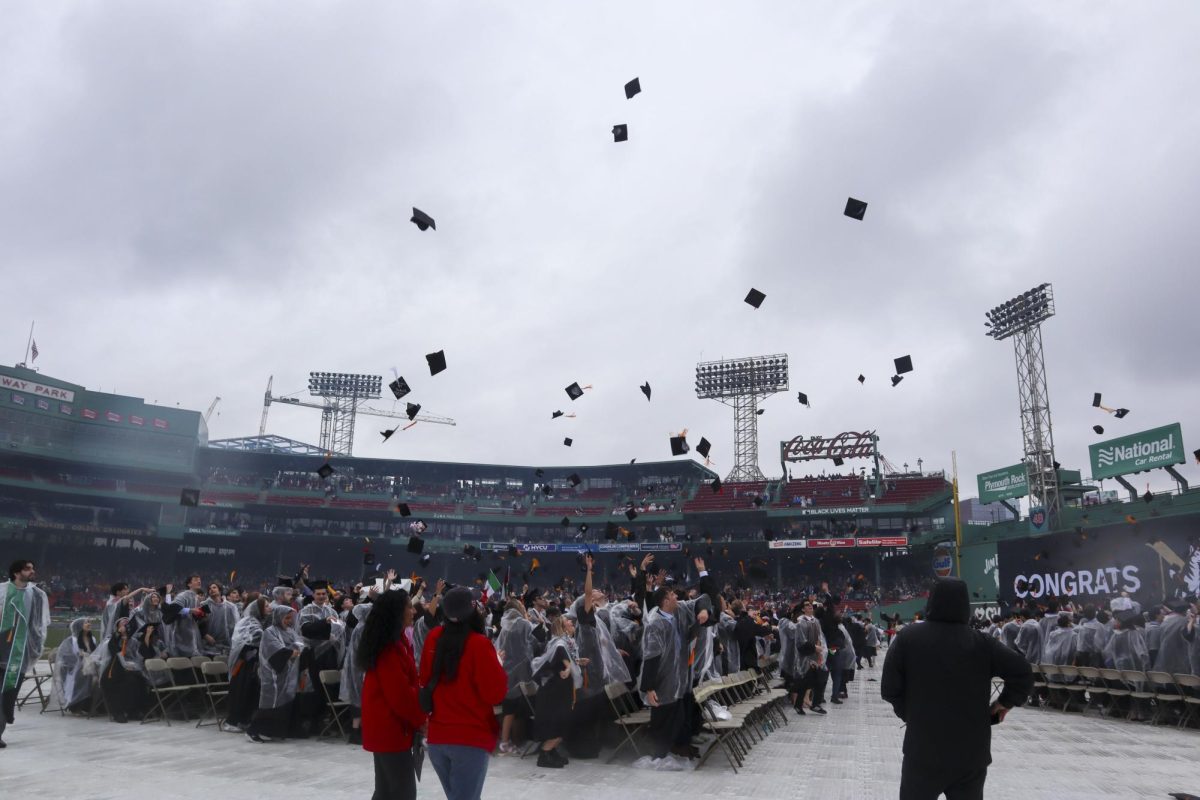By Rose Sopko
The American presidency has become just as entertaining as a Hollywood blockbuster. For the president, the line between a celebrity and political leader has become blurred at certain points throughout history. Journalism professor, Alan Schroeder set out to explain this phenomenon in his new book, “Celebrity-In-Chief: How Show Business Took Over the White House.” Schroeder explained the inspiration behind his book at a discussion and networking event on March 29.
About 65 Northeastern alumni, faculty and students filed into Dodge Hall to hear Professor Schroeder speak and to mingle with distinguished members of the journalism field. The faculty members in attendance were many members of the journalism staff, including School of Journalism Director Stephen Burgard, as well as the Dean of the College of Arts and Sciences James Stellar.
Many distinguished alumni came to support Schroeder as well, and as Burgard said, “this group represents the best of Northeastern’s legacy and credibility.”
Distinguished guests at this event included a variety of valued contributors to the world of journalism, from producers to writers.
Walter Robinson, class of 1974, is an assistant managing editor at the Boston Globe and was the editor of the spotlight team which won a Pulitzer Prize last year for their coverage of the Boston Catholic church scandal.
Dan Kennedy, class of 1979, is a senior writer and media critic for the Boston Phoenix, and an esteemed media critic nationwide.
Anne-Marie Dourning, class of 1995, is a segment producer for “Greater Boston” on WGBH-TV Channel 2. She will be traveling to the Olympics this summer for a freelance project for NBC.
Schroeder is a seasoned veteran within the journalism industry. Before becoming an associate professor at Northeastern, he spent 10 years as a television producer in Wichita, Kan., Denver, Colo. and Boston. He has received three Emmys for his work in production and is a frequent media commentator. He is also the author of the book, “Televised Presidential Debates: 40 Years of High-Risk TV.”
In his new book, he covers an issue that appeals to both the Hollywood buff and political enthusiast alike.
According to a description of the book on Amazon.com, “In Celebrity-In-Chief, journalist Alan Schroeder contends that each camp has influenced the other ‘particularly over the past century’ creating a president who no longer stands apart upon a remote civic pedestal, isolated from Hollywood and pop culture. Instead, the powerful forces of the American celebrity circus drag him into the tent and ask him to put on a show.”
In his discussion, Schroeder spoke mainly about four presidents who exuded a celebrity aura the most: Franklin Roo-sevelt, John F. Kennedy, Ronald Reagan and Bill Clinton.
According to Schroeder, Roosevelt could have been considered the nation’s number one movie fan when he was president. He viewed four to five movies a week and was a tremendous fan of show business. He invited celebrities to the White House including America’s darling at the time — Shirley Temple. He, however, did not allow himself to actually be depicted in any motion pictures.
Schroeder said Kennedy could not help being connected to Hollywood; he was actually born into show business since his father was a film mogul. He had many friends within Hollywood, including Frank Sinatra, who did a lot to help him with his campaign. He also had romantic relationships with Hollywood actresses, like Marilyn Monroe, Angie Dickinson and Janet Lee. He was one of the first presidents to be part of televised debates, which increased his celebrity.
“His early death cemented his immortality,” Schroeder said.
Reagan is probably the most Hollywood of all presidents, considering he was actually an actor in many motion pictures before he even went into politics. He tried to separate himself from Hollywood by being reluctant to use fellow entertainers to help campaign. During his presidency, however, he was still identified as an actor, Schroeder said.
The most recent example of the show business president is Bill Clinton. Many celebrities donated money to his campaign, which helped to solidify him as a celebrity. At one point, Clinton was asked why he became a politician instead of an actor and he responded, “If I went into politics, I could stay an actor and never change roles,” Schroeder said.
Schroeder proved how knowledgeable he is on this topic by answering many audience questions about his views of future show business presidents.
“If he writes like he talks [the book] will sell a million copies,” Robinson said.
“[The book] is terrific and a fascinating look at the presidency and celebrity culture, not how they interact with culture, but how they are a part of it,” Kennedy said.
Schroeder ended the night with this anecdote: “The business of America is show business.”








